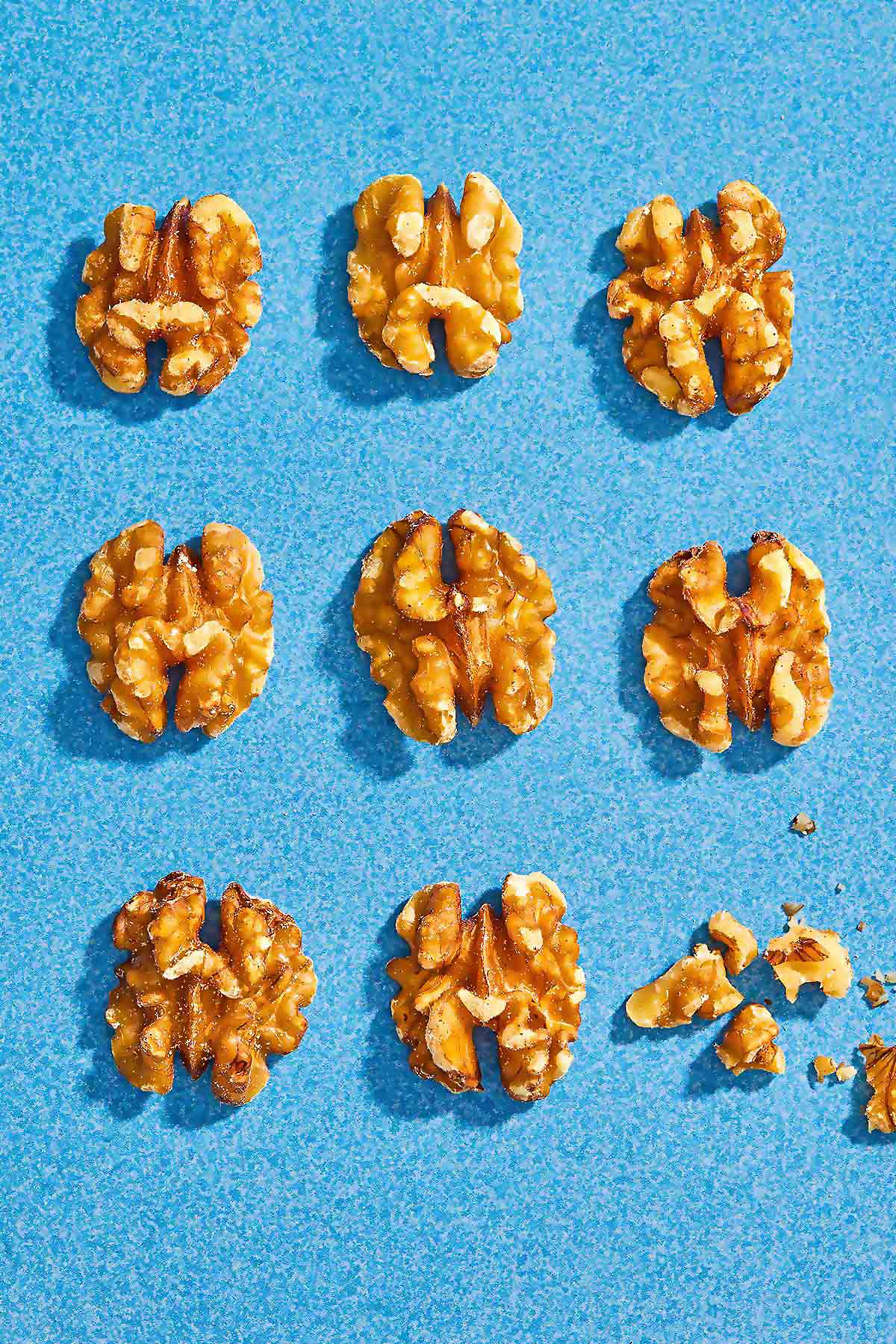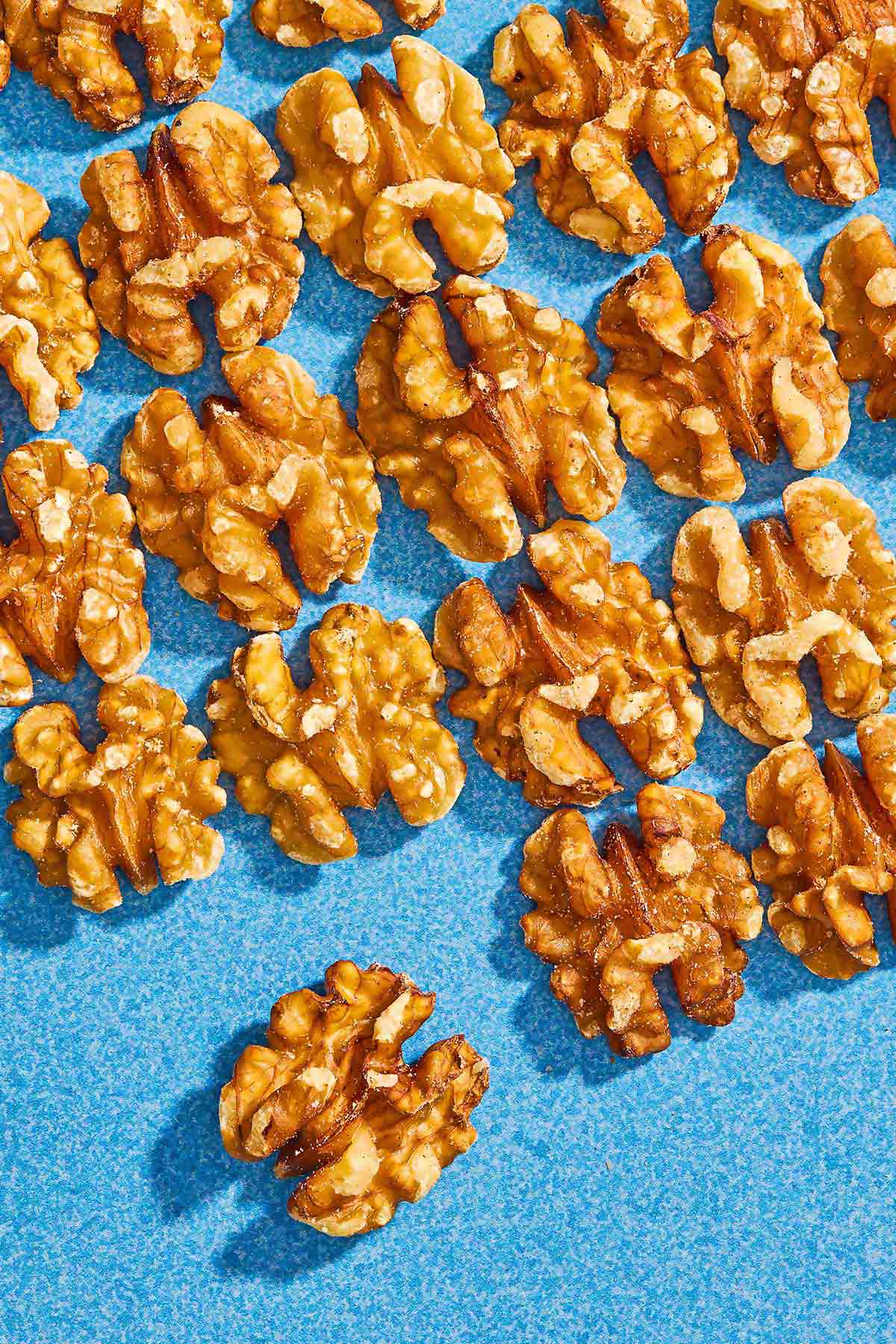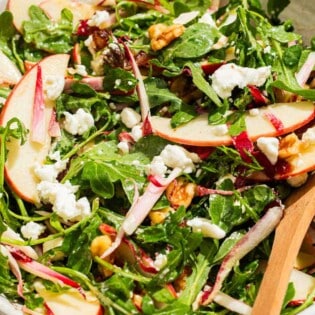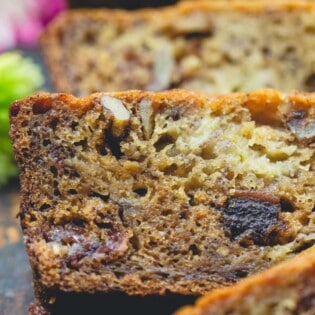Whether aiming to eat more plant-based foods, boost your intake of healthy fats, or simply add more crunch to your meals, walnuts can fit seamlessly into everyday eating. Read on to discover the many health benefits of this Mediterranean diet staple. Plus, some of our favorite ways to work these nutritional powerhouses into your daily routine!

The benefits of walnuts can be credited to their amazing nutrient profile, which supports everything from brain and heart health to blood sugar balance and digestion. Nuts and seeds are among the foundational staples of the Mediterranean diet—and for good reason. As a registered dietitian, I often recommend a daily dose of a variety of nuts and seeds to support heart health and overall wellness.
Among the many options, walnuts truly stand out. Walnuts have been used in the Mediterranean for centuries, featured in both savory and sweet dishes. Whether blended into sauces and dips, turned into a savory sauce for chicken, or sprinkled over salads and desserts, walnuts add a rich flavor and satisfying crunch.
But their appeal goes far beyond taste. Walnuts offer plant-based protein to support muscle health, fiber to help manage cholesterol and blood sugar, and heart-healthy fats that nourish both the heart and brain. Their impressive omega-3 content provides anti-inflammatory benefits and supports cognitive function.
Plus, they’re naturally satiating, helping you feel full and energized throughout the day. It’s the perfect blend of taste and nutrition that has made walnuts a beloved staple in the Mediterranean diet for generations.
Table of Contents

Health Benefits of Eating Walnuts
Let’s break down both why walnuts are good for you and why they’re such a great addition to your Mediterranean lifestyle.
- Heart Health: Walnuts have been shown to support heart health by improving several key risk factors. Research suggests they may help lower total and LDL (“bad”) cholesterol, raise HDL (“good”) cholesterol, reduce blood pressure, and decrease inflammation. They may also help prevent plaque buildup in the arteries, lowering the risk of stroke and other cardiovascular conditions.
- Brain Health: Thanks to their powerful blend of antioxidants and anti-inflammatory nutrients—like flavonoids, polyphenols, folate, selenium, vitamin E, and plant-based omega-3s—walnuts may help protect the brain as we age. Studies suggest that regular walnut consumption can support cognitive function, reduce the risk of age-related decline, and may even help delay the onset of mild cognitive impairment and Alzheimer’s disease. Reducing the risk of depression has also been seen.
- Blood Sugar Balance: Research suggests that long-term, higher walnut consumption is linked to a significantly lower risk of developing type 2 diabetes, particularly in women. Walnuts may also improve endothelial function, which is essential for maintaining healthy blood vessels, further supporting metabolic and cardiovascular health.
- Weight Management: Despite being calorie-dense, research has shown that moderate walnut consumption does not contribute to weight gain. In fact, studies suggest that walnuts may help regulate appetite, promote healthier food choices, and support weight loss efforts when included as part of a balanced diet. Keep in mind that a 1/4 cup of walnuts is about 180-200 calories, so moderation is key.
- Gut Health: Research suggests that regular walnut consumption may positively impact the gut microbiome. Walnuts have been shown to increase the diversity of gut bacteria and support the growth of beneficial, probiotic strains. While more research is needed, these early findings highlight walnuts as a promising food for digestive health.

How to Enjoy Walnuts on the Mediterranean Diet
Walnuts are the perfect snack because they are wonderfully portable—easy to keep in your purse, backpack, or briefcase. Beyond snacking, there are so many simple and delicious ways to enjoy walnuts as part of the Mediterranean diet. Here are some of my favorites:
- At breakfast: Sprinkle over Greek yogurt, stir into overnight oats or fruit salad, or fold into your favorite breakfast bread.
- At lunch: Toss into a fresh salad for texture and the heart-healthy fats to keep you full. They’re also a fun twist in chicken salad, adding richness and depth.
- At dinner: Sprinkle over roasted vegetables or mix into a side salad, adding both flavor and nourishment.
- For a snack: Pair a handful of walnuts with a piece of fruit. Or, stuff a few into Medjool dates for a naturally sweet, satisfying bite. Don’t miss my health benefits of dates article for all the more reason to love this naturally sweet and savory pick-me-up!
- For a special treat: Walnuts baked into Mediterranean favorites like baklava are always a win!

Best Walnuts to Purchase
You’ll typically come across two main varieties of walnuts: black walnuts and English walnuts (also known as Persian walnuts).
English walnuts are the most common and are the type you’ll usually find in grocery stores. You can buy them raw, dry-roasted, or roasted with oil. To get the most nutritional benefit, raw walnuts are your best bet. They retain more of their natural antioxidants and heart-healthy fats.
Black walnuts are more difficult to find. They have a stronger more bitter flavor than English walnuts.
How to Store Walnuts
Walnuts should be stored in the cold to maintain their taste and freshness. Prolonged exposure to warm temperatures can cause them to become rancid. Place walnuts in an airtight container in your refrigerator for up to 6 months, or in your freezer for up to 1 year.
Enjoy Walnuts in These Recipes!
Breads
Banana Walnut Bread
Meat and Poultry
Fesenjan (Persian Pomegranate and Walnut Chicken Stew)
Salads
Healthy Chicken Salad
Browse all Mediterranean recipes.
Visit Our Shop.
The Mediterranean Diet Starter Kit
The vibrant pantry essentials you need to start cooking the Mediterranean way.







